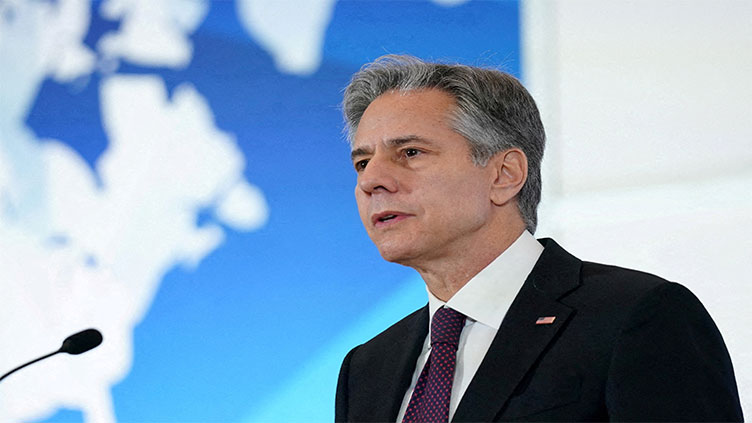Blinken to press ASEAN to take tougher line on Myanmar, China - official

World
Washington hopes to rally ASEAN to take tougher action against Myanmar's military junta.
WASHINGTON (Reuters) - Washington hopes to rally Southeast Asian nations to take tougher action against Myanmar's military junta and to push back on China's actions in the South China Sea as top U.S. diplomat Antony Blinken heads to the region for meetings next week, a State Department official said on Friday.
Secretary of State Blinken will travel to Indonesia to participate in a meeting of foreign ministers from the ASEAN regional bloc after he joins President Joe Biden in the United Kingdom and in Lithuania for NATO meetings from Sunday to Wednesday.
Daniel Kritenbrink, the top State Department official for East Asia, told reporters that Myanmar, which was plunged into chaos by a 2021 military coup, would be "one of the key issues" discussed in Jakarta.
ASEAN has barred Myanmar's ruling generals from its high-level meetings, but Thailand has proposed re-engaging with the junta.
"We do expect our friends and partners in ASEAN ... to continue to downgrade Myanmar's representation in the ASEAN ministerial and we also look forward to finding ways to increase pressure on the regime to compel the regime to end its violence and return to a path of democracy," Kritenbrink said during a phone call to preview the trip.
Washington last month issued sanctions against two Myanmar banks used by the junta to convert foreign currency, in a move aimed at reducing the military's ability to import weapons and material for its crackdown on anti-coup forces.
Kritenbrink said last week that countries in the region should make progress in resolving maritime disputes with each other in order to strengthen their collective voice in disputes with China in the South China Sea.
Kritenbrink said on Friday that the U.S. would work with ASEAN members in Jakarta to push back against what he said was "an upward trend of unhelpful and coercive and irresponsible Chinese actions."
"It's not a matter of getting countries on board with the U.S. view, it's a matter of working with our partners to advance our shared view and vision for the region, and to push back on behavior that runs counter to that vision," he said.

